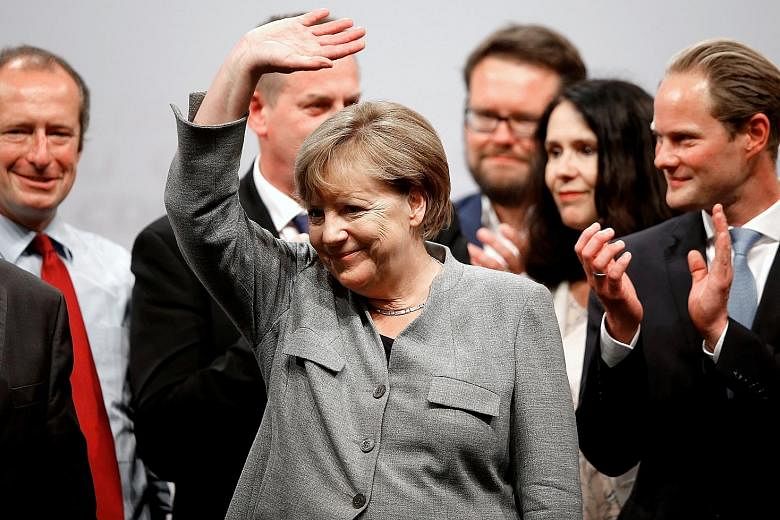BERLIN • German Chancellor Angela Merkel has returned from a three-week Alpine holiday to embark yesterday on what may be the "most bizarre" election campaign in the country's post-war history.
After months of studiously ignoring the race for the Sept 24 election, Dr Merkel kicked off a series of rallies across the country with a speech to supporters in the western city of Dortmund, calling for new technology to be embraced more quickly to protect jobs and repair damage done by a diesel emission cheating scandal by Volkswagen.
But with just six weeks to go before the polls in the European Union's top economic power and most populous nation, Germans are barely taking notice of the election.
Even after 12 years in power, Dr Merkel - frequently called the world's most powerful woman and Europe's de facto leader - looks set for a fourth term.
Gone are the warnings of her political demise heard at the height of the 2015 refugee influx, when nearly 900,000 asylum seekers entered the country. Dr Merkel's conservative Christian Democrats (CDU) lead their closest rivals, the Social Democrats (SPD), by a 12-to-17-point margin.
It is "probably the strangest election race" in the nation's history, Mr Heribert Prantl of the national broadsheet Sueddeutsche Zeitung wrote last week. "There is no wind, never mind a wind of change."
Dr Merkel's main challenger, SPD leader and former European Parliament spokesman Martin Schulz, has led what many commentators call a plodding campaign.
But they acknowledge there is little mood for renewal, as Germans look out on a turbulent world unsettled by US President Donald Trump and Brexit. After high-drama elections in the United States, Britain and France, Germans appear relieved their race is so low-stakes.
"The German elections are very difficult to understand from a foreign point of view because there's hardly any polarisation," political scientist Timo Lochocki of the German Marshall Fund of the US told AFP.
"The SPD can't polarise the campaign alone; the CDU doesn't answer, so (the campaign) is dying," said Dr Lochocki.
AGENCE FRANCE-PRESSE

